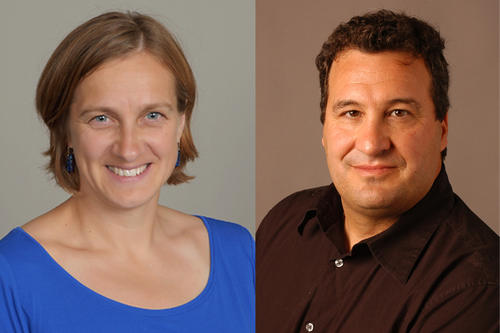
The XXIII Olympic Winter Games open in PyeongChang, South Korea this Friday.
University of Minnesota expert Rasa Troup, a registered dietitian and 2008 Olympian, weighs in on the important role nutrition plays in athletes’ performances. Donald Dengel, a professor in the School of Kinesiology, shares insight into the long-term impact the Olympic Games can have on host countries.
Rasa Troup, MS, RD, CSSD, LD
“Nutrition is the only tool that impacts all aspects of human performance. The best athletes in the world fine tune not only their bodies but also their nutrition to get to the highest levels of performance.
We know so much more about human bodies and how various modifications of nutrition help athletes reach their full potential. Top athletes practice detailed and individualized nutrition strategies the same way they practice the skills needed for their sport and/or event.
There is a lot of science, art, practicality, and individuality in nutritional strategies for athletes – like those at the Olympics – who are among the world’s best. Nutrition provides competitive edge. It is the must not only for athletes, but for all of us.”
As a registered and licensed dietitian, Rasa Troup has worked with the University of Minnesota’s Gopher Women’s Track and Field and Cross Country teams for more than decade. Rasa is also a consultant dietitian for Minnesota Vikings, as well as a dietitian at the University of Minnesota Physicians. Rasa has experience in different areas of nutrition, including clinical nutrition, eating disorders, and sports nutrition.
Troup is also an Olympic athlete who holds the Lithuanian national record in the 3,000-meter steeplechase. She represented Lithuania in the IAAF World Track and Field Championships and the European Athletics Championships, as well as in the 2008 Olympics.
Contact information:
Krystle Barbour
[email protected]
612-626-2767 (office)
414-331-0311 (cell)
Donald Dengel, Ph.D.
“When looking at the impact of the Olympics on a city and a country, one has to consider the short- and long-term impact.
In the short term, the impact can be an increase in the number of building, tourism and security related jobs; new infrastructure enhancements; and so on. For the long term, or legacy impact, one has to look at use of facilities post-Olympic Games, as well as the long-term upkeep costs of those facilities. In addition, one has to look at other factors, like the continued increase in tourism, to the city and country.
The response can be as varied as the 2004 Olympic Games in Athens, Greece, were the long-term impact was partly responsible for the financial issues that the country is now experiencing, to the continued impact of 1992 Olympic Games on Barcelona, Spain, which continued to be one of the top tourist destinations in Europe long after the Olympic Games.”
Donald Dengel, Ph.D., is a professor of Kinesiology within the University of Minnesota’s College of Education and Human Development. He is the director of the Human Performance Teaching Laboratory and the Laboratory of Integrative Human Physiology in the School of Kinesiology. In December and January, Dr. Dengel led a course in London, England, about the impact of the 1908, 1948 and 2012 Olympics had on the city, the United Kingdom of Great Britain and Ireland, and on sport. He also taught Sport and Politics Collide: 1936 & 1972 German Olympics.
Contact information:
Donald Dengel
[email protected]
612-626-9701 (office)
- Categories:
- Law and Policy





